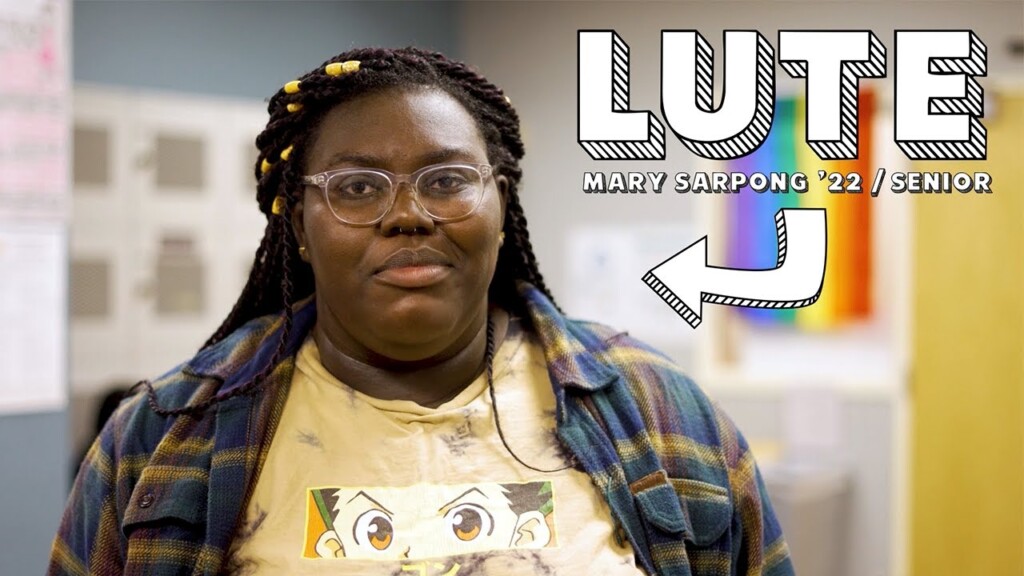Page 37 • (1,304 results in 0.008 seconds)
-
PLU receives grant from Chambers-Clover Creek Watershed Council The Chambers-Clover Creek Watershed Council awarded PLU a $1,200 to help fund the habitat restoration efforts in the Fred L. Tobiason Outdoor Learning Center. In the past three years, more than $20,000 has been secured for the…
restoration efforts in the Fred L. Tobiason Outdoor Learning Center further west. Efforts to expand and enhance the native species in the Tobiason Center have been on-going. This past year, Assistant Professor of Biology Romey Haberle helped start a biology space adjacent to the Mary Baker Russell building. The plants from that space will be used as part of the Tobiason Center project, as well as to increase native plant species presence on the vacant hill space across from the Morken Center. Last summer
-
News articles and blog posts from Pacific Lutheran University.
Growing into her own: how Sarah Davis ’23 discovered her passion for plant biology Sarah Davis, a biology major and Hispanic studies minor, began her PLU journey with the idea that medicine and health care would be the ultimate goal, but then a couple of classes focused on plant development and global agriculture grew a new passion. “I have… May 11, 2023 AcademicsBiologyHispanic StudiesResearchSeekerStudy AbroadStudy Away
-
Check out this great advice for first-year students from Megan Barnhouse ’23.
YouTube Short: A quick campus tour and Lute lingo with Zari Warden November 19, 2024 Major Minute Monday: Global Studies November 18, 2024 You Ask, We Answer: Do you have Marine Biology? November 15, 2024
-
Megan Barnhouse ’23 shares her experience as a first-year student and offers advice to future students.
tour and Lute lingo with Zari Warden November 19, 2024 Major Minute Monday: Global Studies November 18, 2024 You Ask, We Answer: Do you have Marine Biology? November 15, 2024
-
Alina Boorse ’25 shares her experience as a first-year student and offers advice to future students.
, 2024 YouTube Short: A quick campus tour and Lute lingo with Zari Warden November 19, 2024 Major Minute Monday: Global Studies November 18, 2024 You Ask, We Answer: Do you have Marine Biology? November 15, 2024
-
The PLU campus has some cool spots to connect with the community. Hear from three PLU students who share their absolute favorite hangout spots!
tour and Lute lingo with Zari Warden November 19, 2024 Major Minute Monday: Global Studies November 18, 2024 You Ask, We Answer: Do you have Marine Biology? November 15, 2024
-

Mary Sarpong ’22 introduces you to different groups and programs on campus that support diversity.
campus tour and Lute lingo with Zari Warden November 19, 2024 Major Minute Monday: Global Studies November 18, 2024 You Ask, We Answer: Do you have Marine Biology? November 15, 2024
-
Miguel Ordanez ’23 shows you what to wear to stay warm, dry and happy in the PNW.
Minute Monday: Global Studies November 18, 2024 You Ask, We Answer: Do you have Marine Biology? November 15, 2024
-
You need energy to keep up with college life! Cailey Collado ’23 has your back. In this video, she shows you where to grab the best food around PLU.
Major Minute Monday: Global Studies November 18, 2024 You Ask, We Answer: Do you have Marine Biology? November 15, 2024
-
Ready to explore? Tacoma native Lindsey Hansen ’22 shares some highlights of her favorite Tacoma hang-out spots.
November 19, 2024 Major Minute Monday: Global Studies November 18, 2024 You Ask, We Answer: Do you have Marine Biology? November 15, 2024
Do you have any feedback for us? If so, feel free to use our Feedback Form.


